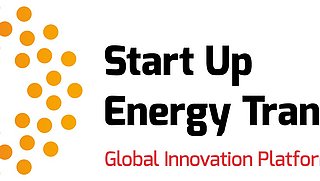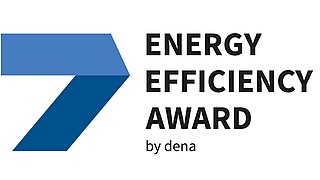Publication of dena’s EnerComputing study
Cloud and edge architectures as intelligent software solutions for the exchange of data in the decentralised energy industry
-
 © HoffotografenSebastian Boie
© HoffotografenSebastian BoieSenior Expert, Communications T: +49 30 66 777 - 168 sebastian.boie(at)dena.de
Berlin, Germany, 18 July 2024. Data exchange and data processing are key challenges of a renewable and decentralised energy system. dena published a study that highlights the potential of cloud and edge solutions as communication and coordination tools today.
Benedikt Pulvermüller, Director of Digital Technologies at dena, said: ‘An increased need for coordination and the increasing complexity due to a large number of central energy-efficient processes is leading to the increasing degree of decentralisation in the energy system. This study shows how cloud and edge architectures can meet the needs of future, highly automated, data-driven applications and how obstacles to the integration of both solutions can be overcome.’
Edge and cloud architectures represent two different concepts for making sufficient computing power available for certain applications in the required time and in a cost-optimised manner. The emerging dynamics in the distribution grid and energy markets can be well accommodated by a combination of cloud and edge computing from a technical perspective. Cloud infrastructures strengthen central processes, information management and decision-making, while edge systems offer customisation options in local contexts. This opens up new possibilities for data processing and data exchange along the entire energy supply chain from the grid operator to the end consumer.
The study shows that the integration of cloud computing and edge computing is still subject to a number of obstacles, particularly in the areas of data protection, data transfer, security and sovereignty, as well as cybersecurity. Uncertainties exist mainly in the areas of security, communication infrastructure and interoperability, and these need to be resolved through regulations, among other means.
The study also provides recommendations for action to ensure the successful integration of cloud computing and edge computing technologies in the energy industry. This includes the promotion and further development of pilot projects, including the realisation of value-added networks, (statutory) incentive regulation for investments and standardisation through the rollout of smart metering systems.
dena’s Future Energy Lab is already analysing the topics of data exchange and data processing in the dena-ENDA and Data Institute – Energy Domain projects. Dena-ENDA has set itself the goal of improving data availability through the development and construction of data spaces. The project used real data from the distribution grid to demonstrate how a data space can facilitate sovereign and secure exchange of data. The Data Institute – Energy Domain project focuses on identifying obstacles and potentials in data exchange processes. This is implemented using the ‘Smart integration of decentralised plants’ use case as an example. The project results will be incorporated into the new data institute, which was established by the German government.
About the Future Energy Lab
With the Future Energy Lab, dena has created a space in which the digital and energy industries convene on behalf of the German Federal Ministry for Economic Affairs and Climate Action. The goal is to test new technologies and regulatory approaches for the electricity, heating and mobility sectors in a think tank and pilot testing laboratory capacity in order to drive the the energy transition forward. The Future Energy Lab serves as a platform for bundling the cooperative efforts of all major industry players and creates a creative space for startups to develop innovative solutions. Please visit https://future-energy-lab.de for further information.


![[Translate to English:]](/fileadmin/_processed_/2/e/csm_250318_JDENA_PHT021_01_cc4dc7d460.jpg)